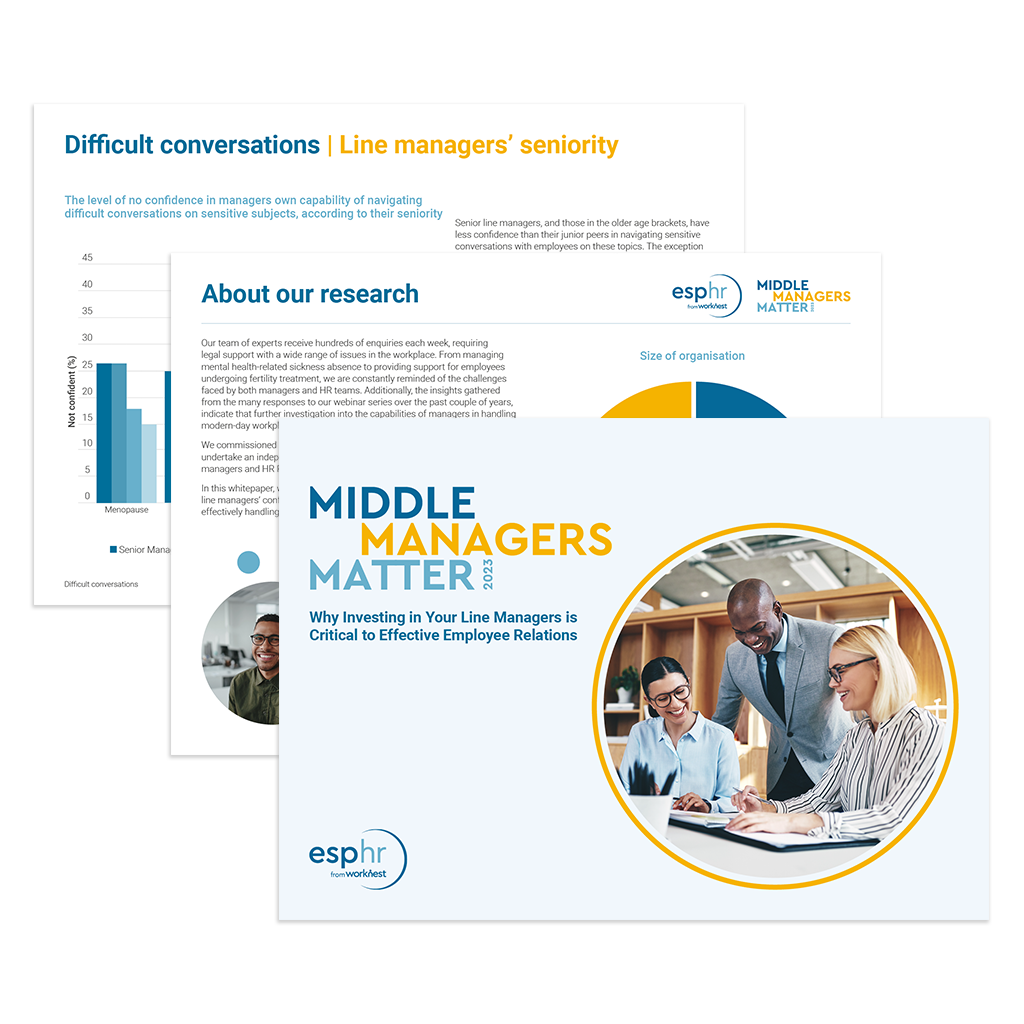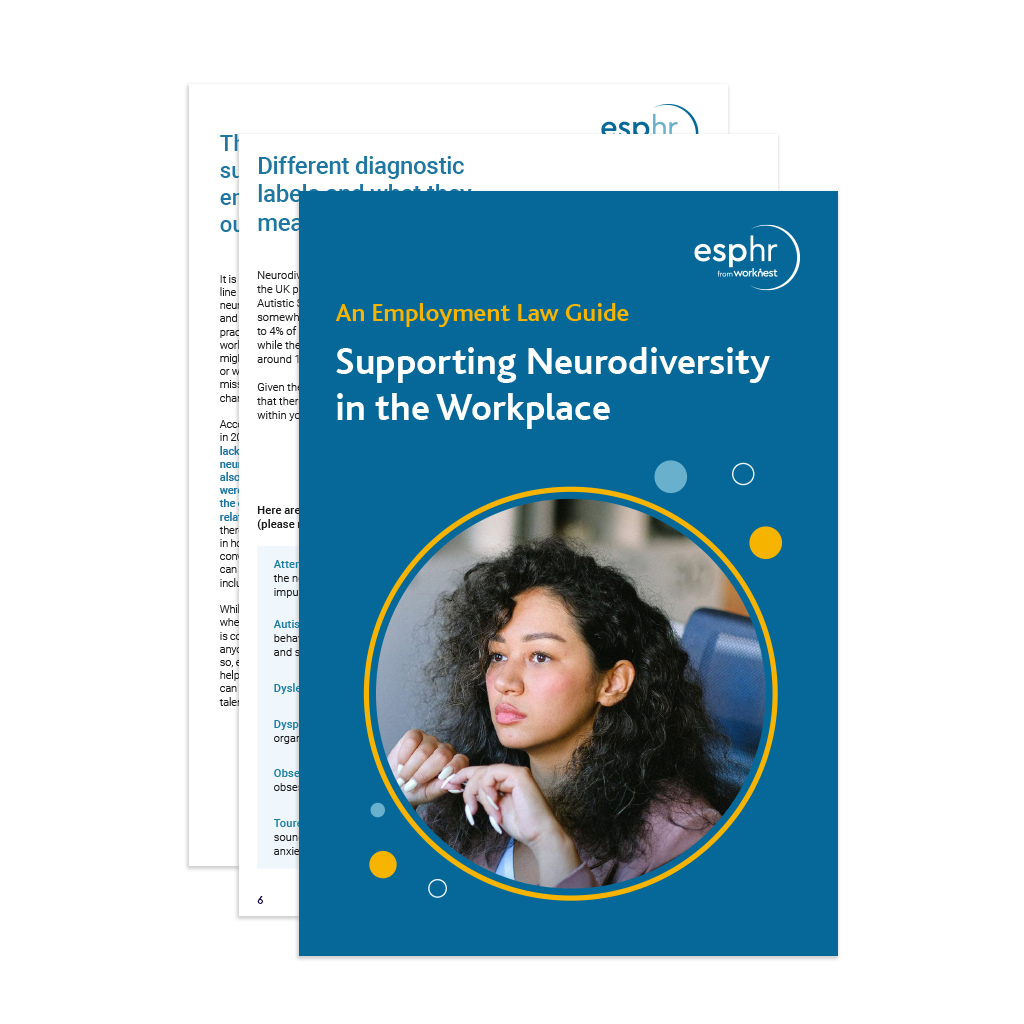There is a critical need for health and social care organisations to provide more training to line managers on important employee relations issues, new research has revealed.
The ‘Middle Managers Matter’ report surveyed over 700 UK line managers including those in health and social care to understand levels of confidence in handling employee relations issues.
Survey findings: Understanding confidence levels
When asked how confident they are in navigating certain sensitive conversation topics with employees, line managers in the health and social care sector industry felt most confident about supporting employees who were dealing with the death of a family member or friend (77% saying they’re confident), harassment (74%), disability (73%), and severe illness (71%). In comparison, managers feel least confident dealing with issues around menopause (66%), fertility (66%), neurodiversity (62%), and gender identity (56%).
Sarah Dillon, Legal and ER Director at esphr by WorkNest which conducted the research, said: “Mid-level managers play a critical role in keeping teams engaged and motivated which significantly impacts retention rates. With the widespread staff shortages we see in the care sector, it’s never been so important to maintain strong employee relations and line managers are at the forefront of this.”
Lack of training on crucial topics
It’s estimated that over 1.3 million of the 1.62 million adult social care workers in England are female* and the workforce has an average age of 45. 28% of the 1.62 million workers are aged 55 and over. Despite this, only half of managers have received training on supporting employees with menopause (52%) and only 17% say they have had ‘thorough’ training. The majority of those who have received training (35%) said it was to ‘some extent’ such as via a guide or similar resource.
This is compared to nearly three quarters having received training on harassment (76%), race (71%), and severe illness (70%). Only 17% had also received ‘thorough’ training on fertility.
“Managers struggling to discuss topics such as the menopause and fertility disproportionately affect women in the workplace,” said Sarah Dillon. “According to CIPD research, nearly one in five employees say they’ve considered leaving their job because of their experience at work in relation to fertility challenges, investigations or treatment so having managers who can support team members through fertility challenges is crucial. With such a female-dominant workforce, the area of reproductive health is a crucial one for employers in social care.”
Lack of neurodiversity training
Over one third (35%) of middle managers also said they hadn’t received any training in supporting neurodiverse employees despite 15% of the UK population estimated to be neurodiverse.
Managers’ concerns and requests
Three in ten health and social care managers have requested more training but not received any and three quarters (74%) worry about getting into legal trouble due to managing employees.
Sarah Dillon said: “The demands of being a line manager are high and these individuals play a critical role in today’s rapidly changing workplace. They’re often moving from ‘mate to manager’, and will have diverse team members with different needs. Moreover, they deal with a significant range of employee relations issues, including the most sensitive topics, whilst still having their own role to carry out.
With radical changes to working life over the past few years, many organisations haven’t had the bandwidth to provide the necessary support to this cohort which is evidenced by our research.”
Confidence levels by seniority and age
Across all industries, the report found that line managers in more senior roles have less confidence in their capabilities than their more junior peers. Senior managers may have gained their experience before significant changes in employment laws or best practices occurred, leading to a perception of being less up-to-date in these areas.
A significantly higher number of the youngest line managers, aged 18 to 25 years-old, (33%) say they were questioned more thoroughly about their management skills during the interview process than older workers (14% aged 55-64).
Sarah Dillon said: “When considering age brackets, as well as levels of seniority, it’s important not to assume that everyone has the same level of understanding and capability to deal with employee relations issues. Our findings reveal that senior managers, and those who are in the older age brackets, can in fact be less confident in navigating difficult conversations than their younger, and more junior peers. They are more likely to have received training on standard people management issues but are the group least likely to have had any training on approaching sensitive conversations.”
The younger generation who have entered the job market more recently appear to have had training that reflects the modern workplace and started in their careers at a time when more emphasis is put on inclusivity.





